What's fascinating about a warrior who never lost a duel? He captured his lifetime of wisdom in a single book.
The Book of Five Rings, written by the legendary samurai Miyamoto Musashi, remains one of history's most powerful guides to strategy and combat philosophy. My extensive study of this remarkable text shows its teachings reach way beyond the reach and influence of sword fighting. These principles are a great way to get practical wisdom for modern life.
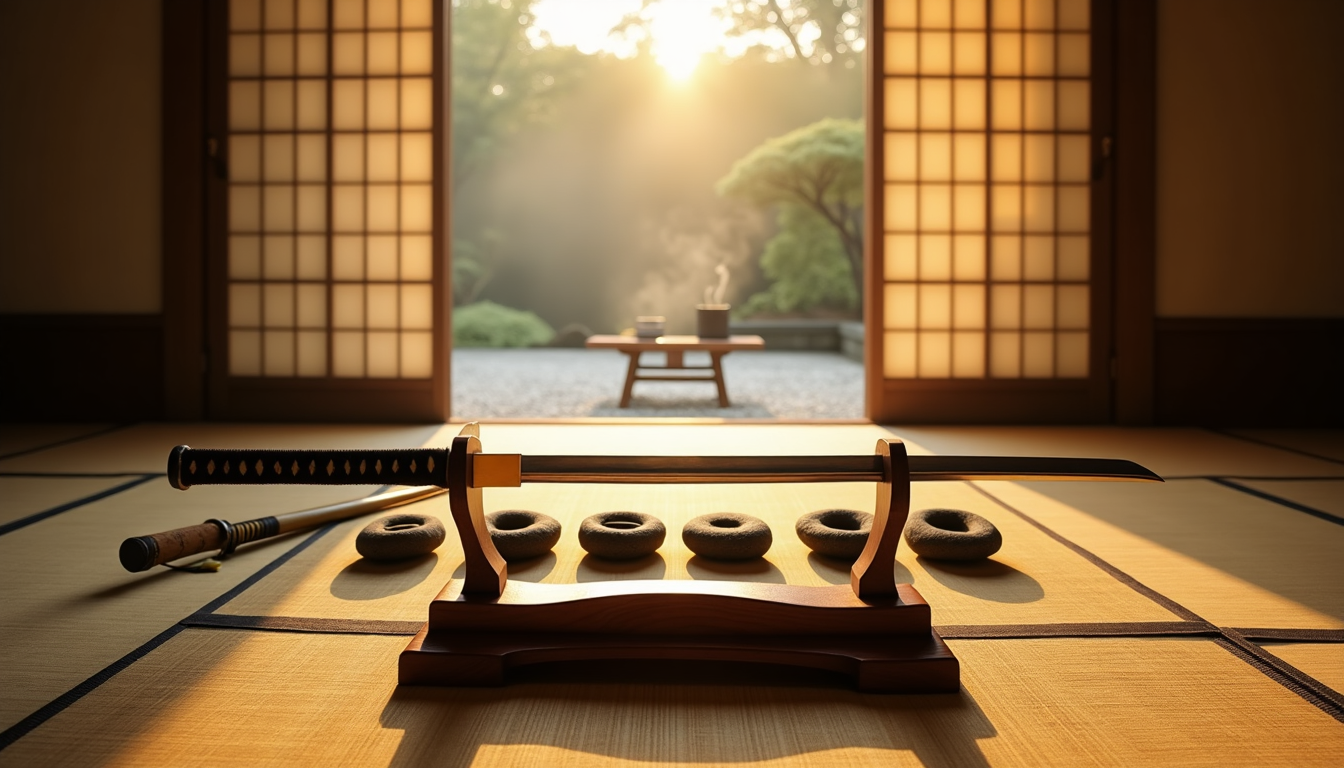
This piece takes you through Musashi's trip from a young warrior to a master strategist. You'll get into his unique two-sword fighting technique and learn about the deep philosophical principles that made him unbeatable. The Book of Five Rings continues to influence business leaders, military strategists, and martial artists who study these teachings today.
Your introduction to this masterpiece of Japanese wisdom starts here. These principles will help you tackle your own challenges head-on.
Musashi's Journey to Mastery
The fascinating story of Miyamoto Musashi reveals how his life experiences shaped The Book of Five Rings.
Vietnamese | MIYAMOTO MUSASHI & Triết lý “Tự kỷ luật bản thân” | 149K Views
Early Life and First Duel
Musashi's path to mastery started in the small village of Miyamoto in 1584.
Life dealt him a tough hand early on. His father's death left him in poverty, forcing him to make his own way.
The sort of thing I love about his story is how he won his first duel at just 13 years old against Arima Kihei.
Key Battles and Experiences
Several crucial battles marked the turning points in Musashi's life:
- The Battle of Sekigahara (1600) gave him his first taste of warfare.
- He proved his skill in the famous Yoshioka clan encounters by defeating multiple opponents.
- His legendary duel with Sasaki Kojiro in 1612 showed his ingenuity when he won using a wooden sword carved from a boat's oar.
Musashi's record stands unmatched with over 60 victories in duels. His innovative two-sword technique changed traditional Japanese swordsmanship forever.
English | The Way of The Superior Man - Miyamoto Musashi | 2M Views
Development of His Philosophy
Musashi's philosophy grew richer with each experience. He built his teachings on three pillars:
discipline, rigorous training, and continuous self-improvement.
His approach reached beyond physical combat. He believed in eliminating unnecessary movements and embracing simplicity.
The Book of Five Rings draws its power from ground experiences. Musashi dedicated countless hours to solitary practice. He combined sword training with deep meditation. His practical philosophy aimed to teach more than just winning fights - it revealed deeper truths about strategy, timing, and life's fundamental principles.
My research shows that Musashi wanted more than becoming the strongest warrior. He worked to uncover universal principles that apply to any field. This explains why The Book of Five Rings remains relevant today as we learn about strategy and personal growth.
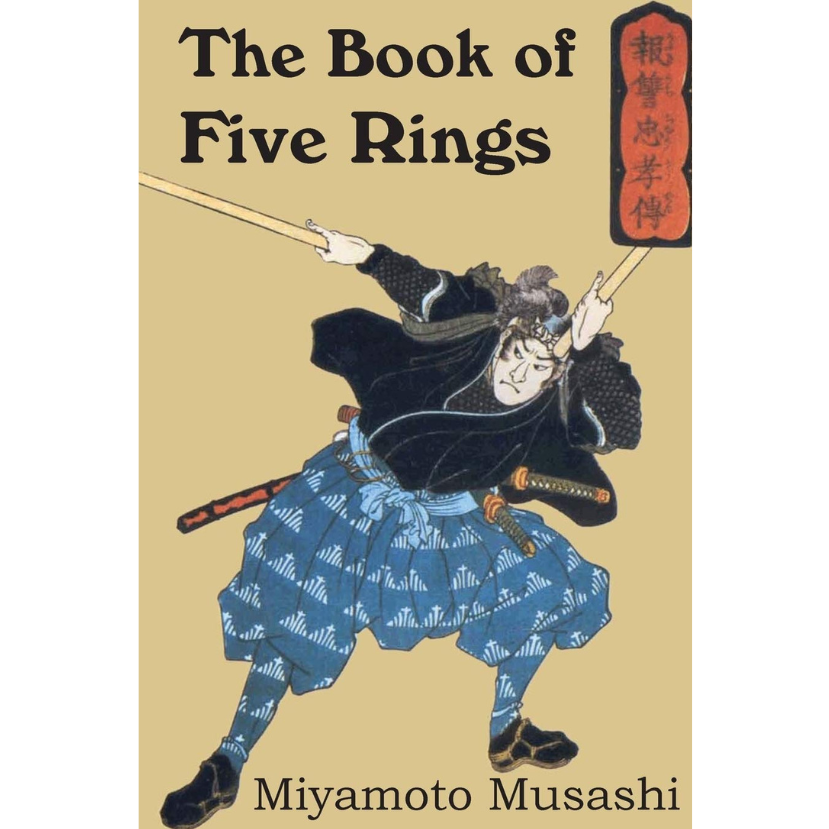
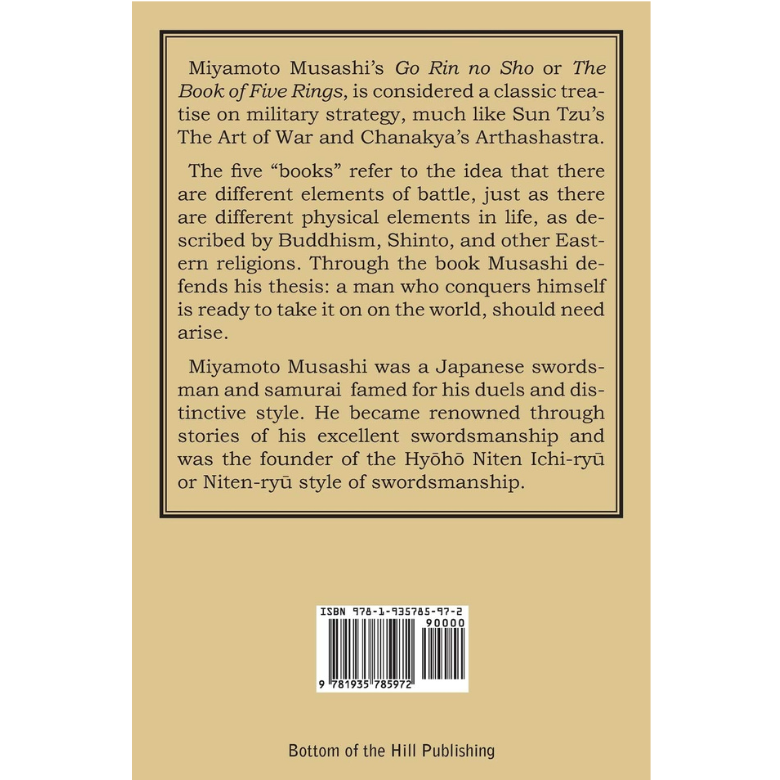
The Way of the Warrior
My study of the Book of Five Rings revealed that the Way of the Warrior extends beyond fighting. It represents a complete philosophy of life and strategy that Musashi developed over decades of experience.
Understanding Strategy vs Tactics
The sort of thing I love about Musashi's teachings is how strategy extends way beyond the reach and influence of combat techniques. His teachings state that "the Way of combat strategy is the same for both large and small matters". His approach stands out in how he distinguishes between strategy and tactics. Tactics focus on specific movements, while true strategy includes your entire approach to any situation.
The Role of Practice and Training
My research shows Musashi placed extraordinary emphasis on practice. "The Way is in training," he insisted. His approach to training fascinates me:
- Daily practice without unnecessary flourishes
- Focus on essential movements
- Continuous refinement of simple skills
He believed that "true growth required steadfast dedication to practice and honing one's skills". This extended beyond physical practice to developing what he called "the resolute acceptance" of your path.
Balancing Technical Skill with Wisdom
Musashi's teachings stand apart through his emphasis on balance. Technical skill alone falls short - it needs wisdom and spiritual development to complement it. Warriors achieve this balance through what he called "tranquil mind," which helps maintain focus whatever the circumstances.
Musashi's emphasis that "in strategy your spiritual bearing must not be any different from normal" resonates deeply. He believed true mastery emerges when technical skills and wisdom combine smoothly. This creates what he described as "a perfectly balanced spirit and physical presence".
His teachings reveal that the Way of the Warrior transcends battle victory. It guides us toward excellence in every aspect of life through disciplined practice and balanced development of mind and body.
Comparative Analysis with Other Strategic Texts
The sort of thing I love about comparing texts in how The Book of Five Rings stands apart while sharing common elements with other classical works.
Similarities with The Art of War
My studies of both texts reveal that The Book of Five Rings has a format like Sun Tzu's Art of War. Both use brief passages under different headings to explain strategic concepts. These texts stress the need to adapt to changing situations. But where Sun Tzu we focused on large-scale military operations, Musashi's work connects individual combat with broader strategic thinking.
Zen Buddhist Influences
Zen Buddhism profoundly shaped Musashi's teachings. His austere and simple approach mirrors Zen principles. The concept of "emptiness" or "void" that he explains through Zen philosophy captivates me. He teaches that "knowing of nonexistence while knowing of existence is emptiness"
Unique Aspects of Musashi's Approach
Musashi's work stands apart through several distinctive features:
- His teachings blend spiritual, psychological, and technical aspects of martial arts
- He shows that knowledge comes full circle - simple teachings often matter most
- Unlike other strategists, he created a more liberal fighting style, like what Bruce Lee would later do with Jeet Kune Do
Musashi's broad and practical teachings remain remarkable. He believed that "there is a rhythm to everything" and applied his strategic principles beyond combat. The Book of Five Rings presents strategy as a complete way of life, not just tactical guidelines.
Musashi takes strategic thinking to new heights compared to other martial artists. He eliminates unnecessary movements and techniques to embrace a minimalist approach focused on essential elements.
Essential Combat Principles
My study of The Book of Five Rings reveals that Musashi's principles to curb opponents are both practical and profound. Let me share everything in his fighting style that made it work.
The Two-Sword Technique
The sort of thing i love is how Musashi developed his unique two-sword style, known as Niten Ichi-ryu, around the age of 21. This technique stands out because it breaks from tradition - all but one of these schools taught using both hands on a single sword. Musashi believed this limited movement flexibility. His style optimizes movement and power by removing unnecessary actions.
Battlefield Awareness
My research shows that Musashi placed great importance on perception and awareness. Success in combat needs:
- Deep understanding of your surroundings
- Keen observation of opponent's movements
- Knowing how to predict enemy actions
He really emphasized studying your opponent and looking for weaknesses and movement patterns that might signal their next attack.
Defeating Multiple Opponents
Musashi's approach to fighting multiple opponents stands out as one of his most impressive combat principles. His strategy against several enemies involved:
Strategic Movement: He taught pushing multiple opponents in the same direction, like shepherding sheep. This made them interfere with each other. His brilliant tactic turned a disadvantage into an advantage.
These principles came directly from his experience in over 60 duels, which makes them exceptional. His combat techniques weren't theoretical - they proved themselves in actual fights. He emphasized that true mastery needs "relentless and devoted training". This combines both physical techniques and mental discipline.
My analysis shows how Musashi's combat principles focus on efficiency and effectiveness. He taught that every movement should have purpose, and that "the true Way of sword fencing is the craft of defeating the enemy in a fight, and nothing other than this".
Philosophical Foundations
My deep study of The Book of Five Rings has revealed Musashi's teachings as both profound and practical. Let me share these compelling insights with you.
The Concept of Emptiness (Void)
The sort of thing I love is Musashi's concept of "mu" or emptiness. This concept transcends our usual understanding of nothingness. The focus lies on creating mental space that allows clear thinking and quick responses. Musashi beautifully describes this state as being like "a leaf floating down a river, gracefully carried by the current".
Non-attachment and Decision Making
Musashi's perspective on decision-making centers around non-attachment. His teachings emphasize the importance of making choices without emotional entanglement. His life reflected this philosophy perfectly. He stayed detached from:
Material possessions
Emotional entanglements
Even the tools of his trade
Unity of Mind and Body
Musashi placed significant emphasis on the "integration of mind and body". True mastery emerges at the time your physical actions and mental state work in perfect harmony. This unity guides you to a state of flow where actions become effortless and instinctual.
Musashi's emphasis on maintaining "heijoshin" or presence of mind stands out remarkably. This concept involves keeping a clear view of circumstances while avoiding biases and preconceived notions. Your mind stays fully present, ready to respond to any situation.
These philosophical principles serve as practical tools to excel in any endeavor. The Book of Five Rings demonstrates that true mastery requires more than physical techniques or mental strength - it demands perfect harmony between all elements.
Conclusion
Miyamoto Musashi's Book of Five Rings stands as a masterpiece that reaches way beyond the reach and influence of combat techniques. After heading over to this remarkable text, I discovered how Musashi's teachings blend practical combat wisdom with profound life philosophy. His experience from a young warrior to an undefeated master shows that excellence emerges through constant practice and deep understanding.
My research shows Musashi's principles stay relevant today. His ideas about strategy, awareness, and the mind-body connection provide valuable lessons for modern challenges. Each teaching carries practical wisdom for our daily lives, from his two-sword technique to his concept of emptiness.
Musashi teaches us that mastery transcends victory - it creates balance in everything we do. His focus on simplicity, continuous improvement, and mental clarity creates a roadmap for personal growth that remains powerful centuries later. His greatest contribution wasn't just combat expertise, but knowing how to transform battlefield wisdom into life lessons. These teachings guide us to face challenges with clarity and purpose.
References
[1] - https://medium.com/illumination/the-philosophy-of-legendary-samurai-miyamoto-musashi-3465330d43c8
[2] - https://www.historyoffighting.com/miyamoto-musashi.php
[3] - https://medium.com/illumination/miyamoto-musashis-most-famous-battles-48f177c7fc7c
[4] - https://moulshree.medium.com/become-undefeatable-the-philosophy-of-miyamoto-musashi-b9e8eaebd156
[5] - https://en.wikipedia.org/wiki/The_Book_of_Five_Rings
[6] - https://warriorfitness.org/life-advice-from-musashi/
[7] - https://einzelganger.co/miyamoto-musashi-a-life-of-ultimate-focus/
[8] - https://thewisdomwarrior.com/2013/03/29/is-your-martial-art-balanced/
[9] - https://www.columbia.edu/~hds2/chushinguranew/Bushido/gorin-no-sho.htm
[10] - https://www.barnesandnoble.com/w/strategy-combo-sun-tzu/1142983029
[11] - https://www.octavianpilati.com/blog/what-i-learned-from-miyamoto-musashis-book-of-5-rings
[12] - https://classicsofstrategy.com/2022/05/19/strategy-as-a-way-of-life-universality-in-the-book-of-five-rings/
[13] - https://www.way-of-the-samurai.com/Hyoho-niten-ichi-ryu.html
[14] - https://m.niten.org/english/instituto/kobudo/niten-ichi-ryu/niten-ichi-ryu-tecnicas.htm
[15] - https://www.shortform.com/summary/the-book-of-five-rings-summary-miyamoto-musashi
[16] - https://medium.com/@juliantineo/i-fairly-recently-read-miyamoto-musashis-a-book-of-five-rings-%E4%BA%94%E8%BC%AA%E6%9B%B8-go-rin-no-sho-337e67acbfe2
[17] - https://medium.com/wake-write-win/become-unconquerable-the-warrior-miyamoto-musashi-de2321f76f75
[18] - https://www.highpotential.coach/post/dokkodo
[19] - https://nhatnhat511.medium.com/become-undefeatable-the-philosophy-of-miyamoto-musashi-1b1267a68841


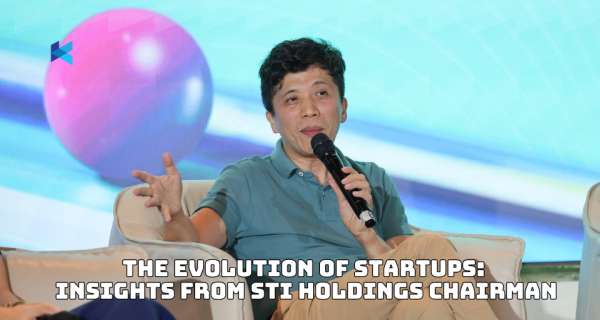


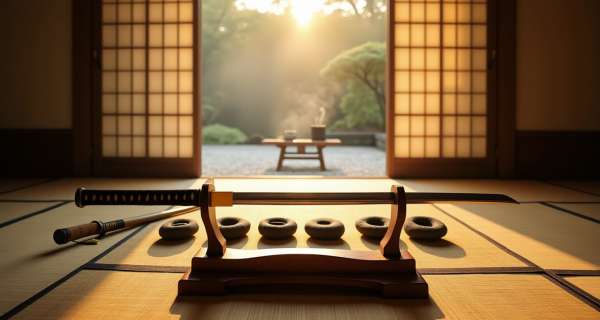










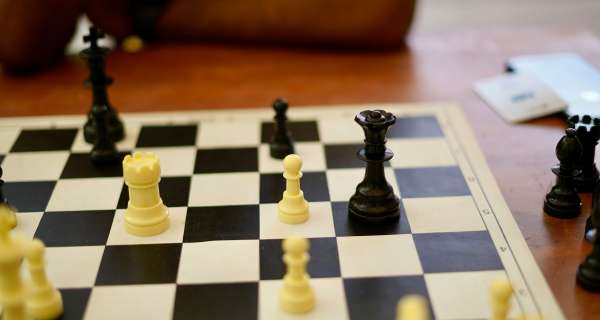



0 تعليقات